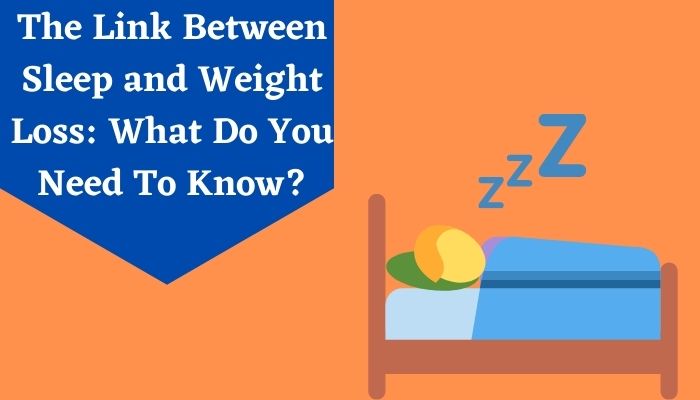Rajneesh works in an MNC, but he is obese. Over the past few months, Rajneesh started to implement various techniques like yoga, exercise, diet, etc. to lose those extra pounds. Though he is following a stringent routine, he is not satisfied with the results. One of his colleagues advised him to take care of his sleeping habits to improve his weight loss journey. Due to his hectic work life, Rajneesh hardly finds enough time for sleep. Since Rajneesh is trying to lose weight, the amount of sleep he gets plays an important part in his diet and exercise. In this article, we are going to discuss more about sleep weight loss.
Sleep plays a significant role in your weight loss journey. As per the Centers for Disease Control and Prevention (CDC), nearly 35% of US adults are sleeping fewer than 7 hours most nights. According to medical science, 7 hours of sleep is not adequate.
Lose Weight While Sleeping
Here are some reasons why adequate sleep improves your weight loss.1. May Control Your appetite
If you sleep for adequate hours, it will decrease your calorie intake and appetite. But if you are sleep-deprived, your calorie consumption will automatically increase. Several medical studies have confirmed that people who are sleep-deprived used to intake more foods and, as a result, their calorie consumption is high.
One healthcare study even claimed that sleep-deprived people used to consume an additional 385 calories per day. Most of these calories are coming from fat. Another study has also proved that sleep deprivation enhances your hunger, food cravings, and portion sizes. Most people used to take chocolates and fatty items if they are sleep deprived. Due to hormones ghrelin and leptin, sleep-deprived people are hungrier. If you don’t get sufficient sleep, your body will release more ghrelin and less leptin. This will make you hungrier and enhance your appetite.
2. Sleeping early prevents late-night snacking
The best time to sleep for weight loss is 9 p.m.-10 p.m. Going to sleep earlier may prevent you from late-night snacking. People used to consume unwholesome food items at night once they passed their bedtime.
For example, if you have your dinner at 6:00 p.m. and you wake up till 1:00 a.m. every night, you will certainly feel hungry between dinner and bedtime. This time, most people consume less nutritious food items. This is because sleep deprivation enhances your appetite and craving for high-calorie, high-fat foods items.
Late-night eating is related to weight gain, a higher BMI, and decreased fat oxidation. If you have a habit of late-night eating, it will become difficult for you to lose weight.
Moreover, if you consume a heavy meal close to bedtime, it will lessen the quality of your sleep and you will become more deprived. People who have acid reflux, indigestion, or gas problems should restrict their food intake before bed. Try to finish your dinner 2–3 hours before bed. If you feel hungry, you can take some protein-rich snacks or cottage cheese.
3. Improves Your Metabolism
Adequate sleep will improve your metabolism which might not happen if you didn’t get enough sleep.
Your resting metabolic rate (RMR) indicates the number of calories your body burns when at rest. This can be influenced by multifarious factors including,
- Age
- Weight
- Height
- Sex
- Muscle mass
- Sleep duration
One small study revealed that protein synthesis reduced strikingly by 18% and plasma testosterone by 24% after one night of poor sleep. Moreover, the cortisol level was increased by 21%. These conditions play an imperative role in the process of the breakdown of muscle.
But several other studies have also suggested that sleep deprivation doesn’t affect muscle repair and growth. To establish the fact, more studies are required.
4. Sleep Improves Physical Activities
Sleep and physical activities are correlated. A lack of sleep minimizes physical activity, and a lack of physical activity will decrease your quality of sleep.
Several studies have proved that regular exercises will decrease the time that you take to fall asleep and improve your overall sleep quality. Poor sleep may make you less motivated to exercise and promotes a sedentary lifestyle.
Inadequate sleep can negatively affect your athletic performance by decreasing your:
- Reaction time
- Fine motor skills
- Muscular power
- Endurance
- Problem-solving skills
Also Read : Keto Diet Improves Your Sleep
Tips For a Better Night Sleep
- Shut down all your electronic devices like TV, mobile phones, and other gadgets at least an hour before you sleep.
- Set the mood of your bedroom. Think only about relaxation and release, instead of work.
- Create a schedule and stick to that
- Check your diet, especially before bedtime. Don’t consume heavy meals and alcohol just close to bedtime as this can cause heartburn. So, it will become difficult for you to fall asleep.



